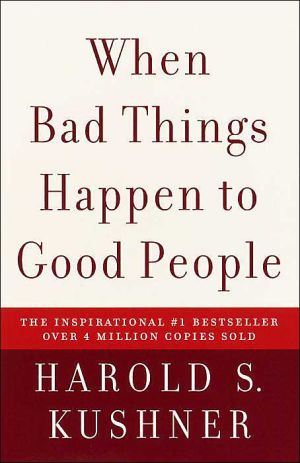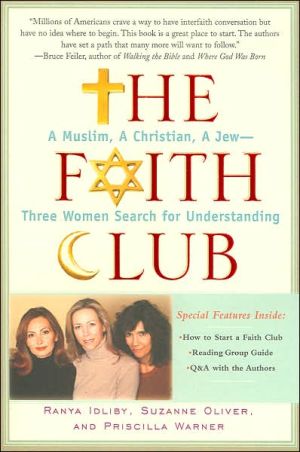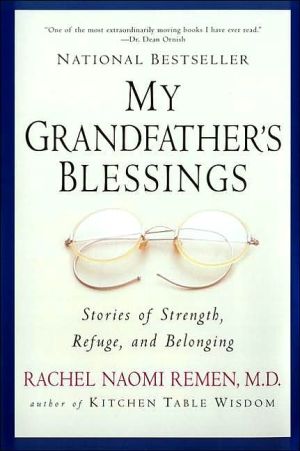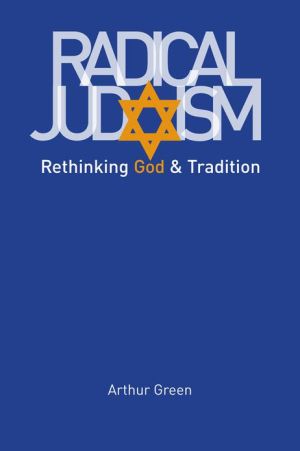A Modern Orthodox Life: Sermons and Columns of Rabbi Emanuel Rackman
Search in google:
\ A Modern Orthodox Life\ \ Sermons and Columns of Rabbi Emanuel Rackman \ \ \ \ By Emanuel Rackman \ KTAV Publishing House, Inc. \ Copyright © 2008 \ \ Emanuel Rackman\ All right reserved. \ \ \ ISBN: 978-1-60280-023-6 \ \ \ \ \ Chapter One 1950\ Shabbat Shuvah The Sabbath before Yom Kippur\ In the Bible we find a very interesting contrast. The man who was most profuse in his good wishes for the people of Israel was Balaam - the Midianite prophet, whom we regard as one of our historic enemies. The man, on the other hand, who was most profuse in his threats and curses - was Moses, the greatest and most beloved figure of our past. Our sages commented on this contrast in the Midrash (Deut. Rabbah, I:4), one would have expected, they said, that a friend would bless us and an enemy would curse us. But the Bible indicates exactly the reverse. Balaam, who was intent on destroying our people, lavished praise and congratulations upon us. He regarded us as the undisputed favorites of God. Moses however, who set out to make us a great nation, did not hesitate to criticize us, to chastise us, to point out our deficiencies. Read the chapter of Deuteronomy in particular and you will come upon language one would never utter to a friend - if one cherished the friendship. The names Moses called the people of Israel would make an anti-Semite rejoice. The dismal future he predicted is a perfect blueprint for all Hamans and Hitlers to come. Yet, we regard Moses as the lover of his people, the man who best exemplified the love of Israel, an unswerving loyalty to his co-religionists.\ To state this contrast, friends, is already to make the point of my message this morning. It is a point most of us have learned from bitter experience. Our best friends are not necessarily our most gracious flatterers. More often our severest critics are our truest friends. And what is true of individuals, is true of nations. Several years ago I pointed out that Balaam could not be respected as a prophet in the manner that the Jewish prophets are respected, for a real prophet helps his people to deepen their religious and moral experience, and does not lull them into a false sense of security as Balaam's wily tongue sought to do. And Moses was the forerunner - or rather the archetype - of Jewish prophecy. He loved his people so much that he even fought with God in their behalf. But instead of flattering them, he ever tried to make them aware of their short-comings, he even tried to make them better.\ Yet, friends, as simple as this point may be, it would surprise you to learn what serious consequences it had for Judaism. Because Moses taught us that spiritual leaders must not be gracious flatterers of their people, we Jews have never had one important problem which Christianity has faced. We Jews never had social reform movements which had as their goal the destruction of Judaism, the termination of the political power of the rabbis, or the confiscation of synagogue property. Most European countries on the other hand, had such social reform movements with regard to their organized religions. Permit me to show you why.\ When a clergy is like Balaam - flattering its constituents and assuring them that all they do is good - that whatever is has God's approval - you are bound to have a problem. When the clergy feels that the social and economic conditions which prevail, no matter how bad, enjoy God's assent, then anyone who seeks change must fight the clergy too. But Moses taught spiritual leaders not to nod "Amen" to everything that is, to everything their charges do. Rather spiritual leaders are to criticize and to improve the status quo. That is why Jewish spiritual leaders were always critical of the manner in which the rich treated the poor and the employers their employees. That is why Jewish spiritual leaders always advocated social and economic reform. They were always in the forefront of the battle to make social and economic conditions better, and righteous living more universal. And as such they did not have to worry about opposition from those who sought change.\ Judaism, for example, did not tolerate slavery and say that if God made the slave a slave, it must be punishment for his sin. On the other hand, Judaism sought to abolish slavery. Judaism did not say that nothing should be done about poverty, hunger and disease because we had no right to frustrate what God willed. On the other hand, the elimination of hunger and disease became the greatest mitzvos we have. Our religion, instead of giving the stamp of approval to the status quo, always sought its betterment. And that is why it hurts us to hear our young people attack religion in general, including Judaism, because religion is on the side of existing power. If anything, Judaism, like Moses, was always critical of that which could be bettered. I repeat - Judaism and its spokesmen were not to nod "Amen" to all that was and bless God for it.\ Such was our mood years ago. But what of the present?\ In one way our rabbis today are not like Balaam, but rather like Moses. They could, for example, if they chose, flatter American Jews for all that was done for Israel. And the truth is that American Jews did do much. As I indicated once before, no other group in America can even approach our record for philanthropy. But rabbis do not flatter their people, for they know how much more can and should be done. We cannot be satisfied with a comparative standard. Rabbis will only congratulate Jews when they have given their very all, when they have given until it hurts, and then some more.\ Rabbis could also, for example, undertake to congratulate Jews on the fact that on three business days of the year they cease completely from business activities, go to synagogue and even give generously to the support of worthy causes. But rabbis do not do this for they know that a three-day-a-year religion is inadequate and that the souls of Jews cannot be sustained by token observance alone.\ Yes, rabbis could congratulate Jews, but instead, it is to their credit that they have chosen to be like Moses, and they scold and chastise. They want Jews to be still better and do more. This has been our historic role - to be like Moses, and not like Balaam.\ I fear, however, that with respect to one thing at least, a change is setting in. I fear it, because once rabbis become like Balaam - flattering Jews and assuring their people that all they do is fine - we are headed for trouble.\ We have come to an age when Jews, for example, prefer a rabbi who says that whatever they do is fine. As a matter of fact congregations now set out to retain rabbis who will give the stamp of approval to all the liberties they take individually regarding the Sabbath, regarding synagogue services, regarding even the laws of mourning which up to recently Jews were wont to observe rather strictly. Furthermore, Jews want to join or establish congregations whose policies are such that whatever the members decide to do is regarded as permissible.\ I pray that no one will misunderstand me. Just because a Jew does not observe all the commandments does not mean that I cannot respect, admire and even love him. I know many such people in this very congregation and I respect, admire and love them. But I do not believe any of these self-respecting men could respect me if I said "Everything you do is fine. And even if you feel that there are some observances which you want to disregard, I will examine Jewish law to help establish a basis for proving that you are doing no wrong. And if I cannot find substantial proof I will change the law so that you need have no guilty conscience." Nor do I feel that any self-respecting man could respect a congregation whose policy it is to help him feel that all he does is right. Such a congregation should never have come into existence.\ I believe that the Jew who is not 100 percent observant ought to respect his rabbi and congregation more, when instead of saying that whatever is inconvenient or not readily understood can be disregarded, the rabbi and the congregation help the man to see the value of doing the inconvenient, or help him to understand what is not readily intelligible.\ If the rabbi becomes nothing more than an "Amen" nodder to all that his flock does, he will sacrifice his historic role. He will become simply an instrument to relieve Jews of all feelings of guilt.\ Now I want changes in Jewish law. And I tell you that Jewish law was changed in the past, and will change in the future. But these changes were not made to relieve Jews of guilty consciences. We did not say, "Let us change the law whenever Jews don't observe it." We did not say, "Let us change the law so that instead of feeling like sinners, Jews will be saints in their own eyes." On the other hand, if Jews had a guilty conscience, we felt it was healthy. Their guilty conscience might help them to do better in the future. But if we continue to change the law only to appease the guilty consciences of Jews, we are making a farce of religion.\ And that is what I want you to understand this morning on this great Sabbath of Penitence.\ A guilty conscience is a healthy thing. It is healthy for our Jewishness. It is healthy for the survival of Judaism. If every Jew - and that includes everyone, rabbis and congregants - if every Jew has a guilty conscience, the day may come when there will be an improvement in our ways. But if we tell Jews they can do anything they like on the Sabbath, what hope is there that they will even make the Sabbath more meaningful to themselves, more inspirational, more conducive to family togetherness? If we tell Jews that they may eat anything they please, what hope is there that they will ever recognize what Jewish consciousness and consecration is induced by the observance of dietary laws? If we tell Jews that it is enough to pray once a week, what hope is there that they will ever experience the strength that comes from daily prayer or the dignity that is added to the table with the recitation of grace before and after meals? If we tell Jews that they may modify the laws of mourning as they please, what hope is there that they will ever appreciate the full value of the rules pertaining to Shiva and Shloshim with regard to the proper orientation of the living to the problem of life and death?\ Yes, a guilty conscience Jewishly is a good thing. A man without a guilty conscience never becomes a better man. And a Jew whose rabbi has helped to deaden his Jewish conscience can never become a better Jew.\ I remember during the last war how many orthodox rabbis had to counsel with soldiers who never desecrated the Sabbath or ate non-kosher food and found it impossible to continue their observance. The rabbis were wont to quote one famous sage who said, "If you have to do the prohibited, at least try not to enjoy it." If the soldier continued to have a guilty conscience, he might some day be restored to his earlier practices.\ I also recall a non-Jewish general in Europe who expressed a similar thought. Like many others, his drinking habits were hardly honorable and his morals away from his family hardly praiseworthy. One day he expressed himself to his Chaplain, "I know I am doing wrong, Chaplain, but as long as you lead a decent life even here amid war conditions, you are my conscience. You are my constant reminder of what I should be. You are my reminder of the standards to which I hope some day to return. Don't you ever let yourself sink to my level."\ And in my own chaplaincy experience I had a problem. I was stationed at Randolph Field and had no difficulty in observing Shabbos. As a matter of fact, I had regular Sabbath eve and Sabbath morning services. One day my superiors told me that they wanted me to forget the Sabbath morning services at Randolph and conduct them at Hondo Air Base 50 air miles away, for the men at Hondo could only attend services on Saturday mornings. A plane would transport me back and forth. I need not tell you how badly I felt, but before I could do anything about it, I happened to discuss the problem with my men at Randolph at a meeting of our chapel council. And a number of them did not hesitate to express themselves. "Chaplain," they said, "If you have to go to Hondo on Shabbos mornings we will take charge of the service at Randolph ourselves. But we hope you don't have to go. You are the one man who represents for us resistance to the desecration of the Sabbath. You manage in spite of military duties to represent for us what the Shabbos should be. Some day we too may be able to observe the Sabbath. But if we see you flying to and fro like the other officers, we will lose the one great reminder we had of what Shabbos is like." Their reaction floored me, and I was more determined than ever to find a way not to fly to Hondo. I moved heaven and earth and arranged for a service there on a weekday that I might personally observe Shabbos and at the same time not destroy what I represented to my men at Randolph. I was their conscience, even as they stimulated mine, and I could not let them down.\ Yes, a guilty conscience is a good thing Jewishly. It helps to make us better - if not now - then later. Therefore, let us not ask rabbis to nod "Amen" to all we want to do. Instead, let us recognize our Rabbi as the reminder of what we ought to be and do. Instead of appeasing our consciences by seeking assurances that we are doing no wrong, let us see whether we can't improve upon our conduct and add to our observance. Let us see whether we can't do at least one thing better this year than we did the year before.\ That is the appeal of the Sabbath of Penitence when we are to consider our potentialities of becoming better than we ever were - more observant, more charitable, more learned in things Jewish. That is my appeal to you - let us not deaden our guilty consciences. Let us not seek changes in the law only to appease feelings of guilt. Let us not seek different synagogues only because their policies help us to feel that we are saints, not sinners. Continue to be loyal to orthodoxy - and orthodox synagogues - and even if you feel guilty that you are not personally orthodox, the day may come when your guilty conscience will help to make a better Jew of you. Running away from your conscience to a place where you are told that you are a saint makes a farce of God and religion. And that no self-respecting person wants.\ I pray that the day will come when all Jews will realize this, and while changes in Jewish law will come, they will come because of the demands of spiritual living - not because Jews want to be flattered into feelings of security that they are doing no wrong.\ Chapter Two Passover 1950\ Judaism: A Social Religion\ In recent years I have heard an ever increasing number of Jews refer to our current festival as the "Jewish Easter". Perhaps this new title for the holiday is born of the inability of our American co-religionists to remember the simple words Pesach or Passover. Or perhaps it is due to the remarkable perennial coincidence of the Christian observance with our own. This year, for example, our eight-day celebration coincides exactly with the interval between Palm Sunday and Easter, and that may prompt many of our people to seek to make themselves more readily understood to their non-Jewish friends by the use of Christian, rather than Jewish, terminology.\ However, I cannot tell you how the phrase "Jewish Easter" would have offended the sensibilities of our ancestors. It would truly have grated against their ears to learn that the more ancient Jewish festival must be explained in terms of a later non-Jewish one - which seldom spelled anything but grief for them. I, too, find myself irritated by the phrase. But not so much for sentimental, as for intellectual, reasons. To me the association of Passover with Easter is an indication not only of Jewish inability to remember the names Pesach or Passover, but also of Jewish ignorance of the fact that the philosophies underlying the two holidays are antithetical as day and night. The significance of Easter is almost a contradiction of the significance of Passover. And for Jews to ignore the difference is to be oblivious of the unique genius of our faith and its eternal meaningfulness for humanity.\ Permit me to explain. In the study of religions one frequently finds it advantageous to distinguish between what may be called private religion and social religion. Some religions are principally concerned with the individual man as an individual. They seek to furnish a way of attaining personal salvation. They seek to provide the means for assuring the immortality of the individual's soul. That is their principal goal. That is why I call these religions private religions. They may be the religions of millions of people but their primary concern is with the souls of individuals as individuals. There are, on the other hand, religions whose primary concern is with the group, with society as a whole, with humanity at large - not with isolated human beings - but rather with human beings organized into families, communities, nations. Private religions mainly ask, "What must a man do to make his peace with God that he may enjoy life everlasting?" Social religions mainly ask, "What shall man do in his relations with his fellow-man that God's Kingdom may exist on earth as it does in heaven?"\ (Continues...)\ \ \ \ \ \ Excerpted from A Modern Orthodox Life by Emanuel Rackman Copyright © 2008 by Emanuel Rackman. Excerpted by permission.\ All rights reserved. No part of this excerpt may be reproduced or reprinted without permission in writing from the publisher.\ Excerpts are provided by Dial-A-Book Inc. solely for the personal use of visitors to this web site.\ \
Contents Introduction....................ix SERMONS 1950 Shabbat Shuvah....................3 Passover 1950 Judaism: A Social Religion....................10 Passover 1951 The Love of Jews....................16 1952 The Great Challenge of Our Day....................23 Shavuot 1953 Altar and Courthouse....................28 Shavuot 1953 The Yoke of the Law....................33 Kol Nidre 1954 Days of Awe....................37 Yom Kippur Eve 1955 Responsibility for Our Own Sins....................42 Rosh Hashanah 1957 Helping God to Use Us....................46 Sabbath of Penitence 1958 Children of Three or Eight....................53 Rosh Hashanah 1959 Selflessness....................59 Yom Kippur eve 1962 The Sin of Habit....................65 Passover 1963 The Lesson of Not Seeing God....................71 COLUMNS 09-02-71 Is Term "Goy" Perjorative?....................79 09-16-71 Appetite Satisfaction on a Higher Plane Is Definition of Kashruth....................82 09-23-71 Talmud Flatly Forbids Criminal Record for Those Who Repented....................85 12-23-71 Deprive Them: Can Christmas permissiveness fail to weaken Jewishness of the coming generation?....................88 01-25-73 Zealots Who Offend: Can their ugly behavior be devoid of blind hatred for other human beings?....................93 02-01-73 Bodies Belong to Whom? Judaism denies a person the right to abuse or destroy gift from God....................96 03-01-73Intellectual Idolatry: Name of God taken in vain when linked arrogantly to any empty ideology....................100 05-03-73 Price of Exposure: In all times, Jews have been exposed to rival cultures and generation gaps....................102 05-17-73 No Jewish Watergate: Right to privacy was firmly established centuries ahead of other nations....................107 05-24-73 America Vindicated: Exposure of Watergate seen as result of liberties this country maintains....................111 06-21-73 A Convert's Status: He has embraced the Torah of his own free will and derives special merit....................115 09-06-73 Joy of Being Jewish: It is enough to compensate for all problems, trials and grim forebodings....................119 03-29-75 One-Sided Orthodoxy? Passover message insists honesty just as important as ritual observance....................122 10-05-75 Ethics of the Heart: How pious men refused to take advantage of common business practice....................126 11-09-75 Pragmatic Needs, not Halacha, Hold Key to West Bank....................129 04-11-76 Assurance of Future: What else can explain continuity of identity?....................132 05-02-76 "Denominations Fail" to Give an Accurate Idea of Jewish Life....................135 05-16-76 Jews Racists? Aid given equally to Jews and non-Jews....................138 06-06-76 Halacha Seen Viable Basis for Israel Despite Some lacks....................141 06-27-76 America's Jewish Debt Is Not to Jews of 1776, But to Judaism's Tenets....................144 09-26-76 Letter to My Son....................147 1980c Concern for a Positive Jewish Image is No Heresy....................158 1980c The Case for Israel's Prisoner Exchanges....................162 1980c A Step Toward Bridging the Religious-Secular Gap....................165 11-26-82 Modern Orthodox Jews Keep Authentic Tradition Alive....................168 01-07-83 The Bible Is a Guide to Mankind, Not to God....................172 02-11-83 One of Century's Great Jewish Teachers Is 80....................175 06-17-83 Retirement: The ages-old dilemma....................178 11-11-83 Needed: A Universal Jewish Family Law....................181 1984c Forgive the Germans, But May They Never Forget....................185 03-84 Self-defense No Guarantee of Right to Violence....................188 03-84 Orthodoxy's Rift Must Be Healed....................192 04-84 An Advocate of Integration Without Assimilation....................195 04-13-84 Jewish Education Belongs in the Family Too....................198 06-08-84 Israeli Terrorism: Reasons but no excuses....................201 06-15-84 Progress Often Surprise Result of the Bitterest Confrontations....................204 09-84 The Special, Two-Faceted Sensitivity of Jews....................208 11-02-84 When Extremism Is Sin, When It's a Virtue....................210 12-84 Paradoxes for Committed Jews in a Secular World....................214 02-28-85 Why Good Deeds Don't Guarantee Rewards - and Vice Versa....................218 03-08-85 Questioning and Accepting Reasons for Commandments....................221 09-27-85 An Optimist Sees Pessimism in Ecclesiastes....................224 12-27-85 Judaism's Special Sensitivity in Human Relations....................227 1986 Orthodoxy's Champion of Sacred and Secular Syntheses....................230 1990c Think Before Acting: A godlike life requires discipline and unrelenting thoughtfulness....................233 1991c Plea for Mercy: "Miscarriage of justice" against Pollard begs for commuted sentence....................236 1991c Policy of Separation: Government works best when the secular and spiritual coexist....................239 08-30-91 Value of Non-Orthodoxy: New ideas once condemned, sustain or advance Judaism....................242 10-04-91 Keep Criticism Constructive: When faulting Israel, one should deliver the message "lovingly"....................245 12-20-91 Democracy in Judaism: "Majority rule" is biblical; dissent always was protected....................248 1992 The Big Lie: U.S. Jews must act to stop the misnomer "occupied territories"....................251 1992c Revel in Repetition....................254 03-20-92 The Beauty of Legal Loopholes: Rabbinic fictions make for good reading and better memory....................257 03-27-92 Making Waves: U.S. Jewish groups must lead the fight against "territories" lie....................260 12-13-97 A Legacy of Survival: Perseverance has consistently saved Jews from persecution....................263 Needed for Jewish survival: Toleration, Civility....................266 The Real Meaning of a Mistranslated Biblical Verse....................270 The Importance of Voluntarism in the Welfare State....................273 Why Jews Abhor Bloodshed: Tenets of Judaism, especially dietary laws, instill reverence for life....................277 Why Not Give New Ideas a Fair Chance?....................281 ARTICLE 1992 Thoughts on the Holocaust....................285 INDEX....................297








